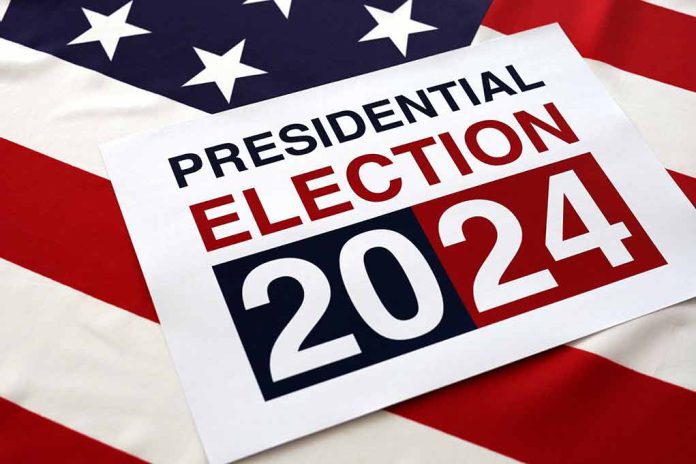
The Pennsylvania Supreme Court’s recent ruling ensures Cornel West’s name won’t appear on the 2024 presidential ballot.
At a Glance
- Pennsylvania’s Supreme Court upheld a ruling removing Cornel West from the 2024 ballot.
- The decision supports the secretary of state’s office under Democratic Gov. Josh Shapiro.
- The ruling allows counties to start printing, testing, and sending out mail-in ballots.
- Secretary of State Al Schmidt certified the ballot shortly after the decision.
- The exclusion of West underscores the importance of proper filing procedures.
Pennsylvania Supreme Court Decision
The Pennsylvania Supreme Court upheld a lower court ruling that disqualified independent candidate Cornel West from appearing on the 2024 presidential ballot. This decision echoes an earlier Commonwealth Court ruling, primarily citing incomplete campaign affidavits as the reason for West’s exclusion. The court confirmed that his campaign failed to provide required affidavits for 14 of his 19 presidential electors by the August 1 deadline.
With this ruling, Pennsylvania’s official list of candidates now includes Donald Trump, Kamala Harris, Green Party candidate Jill Stein, and Libertarian candidate Chase Oliver. The ruling emphasized the need for adhering to proper filing procedures within our democratic system. The state requires strict compliance to maintain the integrity of the electoral process.
Re-upping this to say that three of the four cases were resolved Friday afternoon. Supreme Court upheld lower court ruling to keep candidates off ballot. Cornel West case still needs to be resolved before the ballot is finalized. Our story from last week: https://t.co/iBTf7dLrCt https://t.co/4lQFPcXrQq
— Carter Walker (@ByCarterWalker) September 16, 2024
Implications for the Electoral Process
The decision has significant implications for the upcoming election. Counties now have the green light to start printing, testing, and distributing mail-in ballots. Secretary of State Al Schmidt promptly certified the ballot for counties following the court’s decision. Schmidt’s office underscored that adherence to deadlines and filing requirements is non-negotiable.
“Counties can now prepare their ballots to be printed, then begin sending mail ballots to voters who have requested one as soon as they are printed,” Schmidt said in a statement.
The court’s ruling is in line with partisan legal efforts observed nationwide to manage third-party candidate entries. Such moves aim to prevent vote siphoning in battleground states like Pennsylvania, which holds 19 electoral votes and has historically played a crucial role in deciding presidential elections. The Nov. 5 election in Pennsylvania is anticipated to be tightly contested.
Pennsylvania court rejects Cornel West’s bid to get on ballot and clears way for mail voting https://t.co/42SveEYFi4
— The Morning Call (@mcall) September 16, 2024
Broader Legal Context
The Pennsylvania Supreme Court also blocked Constitution Party candidate James Clymer and Party for Socialism and Liberation candidate Claudia De la Cruz from the November ballot. The reasons cited were non-compliance with the state’s filing requirements. This broader legal context highlights ongoing challenges for third-party candidates trying to secure ballot spots in critical states.
“Pennsylvania’s Supreme Court on Friday sided with lower court decisions to block two third-party presidential candidates from the battleground state’s ballot in November’s election.” – AP News
Pennsylvania's Supreme Court on Monday upheld a ruling that rejected a bid to get independent presidential candidate Cornel West on the November ballot.
The decision sets in motion the process for counties to start sending out mail-in ballots.https://t.co/qCkPkICTVr
— WHYY News (@WHYYNews) September 17, 2024
While candidates like Green Party’s Jill Stein and Libertarian Party’s Chase Oliver managed to get on the ballot without challenges, the exclusions of others reflect stringent enforcement of procedural rules. This setting can significantly influence party strategies in battleground states.
Sources:
- Pennsylvania’s Supreme Court rejects Cornel West’s bid to get on ballot, clears way for mail voting
- Pennsylvania high court rules against two third-party candidates trying for presidential ballot
- Pennsylvania court rejects Cornel West’s bid to get on ballot and clears way for mail voting
- Pennsylvania court rejects Cornel West’s bid to get on ballot and clears way for mail voting
- Pennsylvania Court Rejects Cornel West’s Bid to Get on Ballot and Clears Way for Mail Voting














